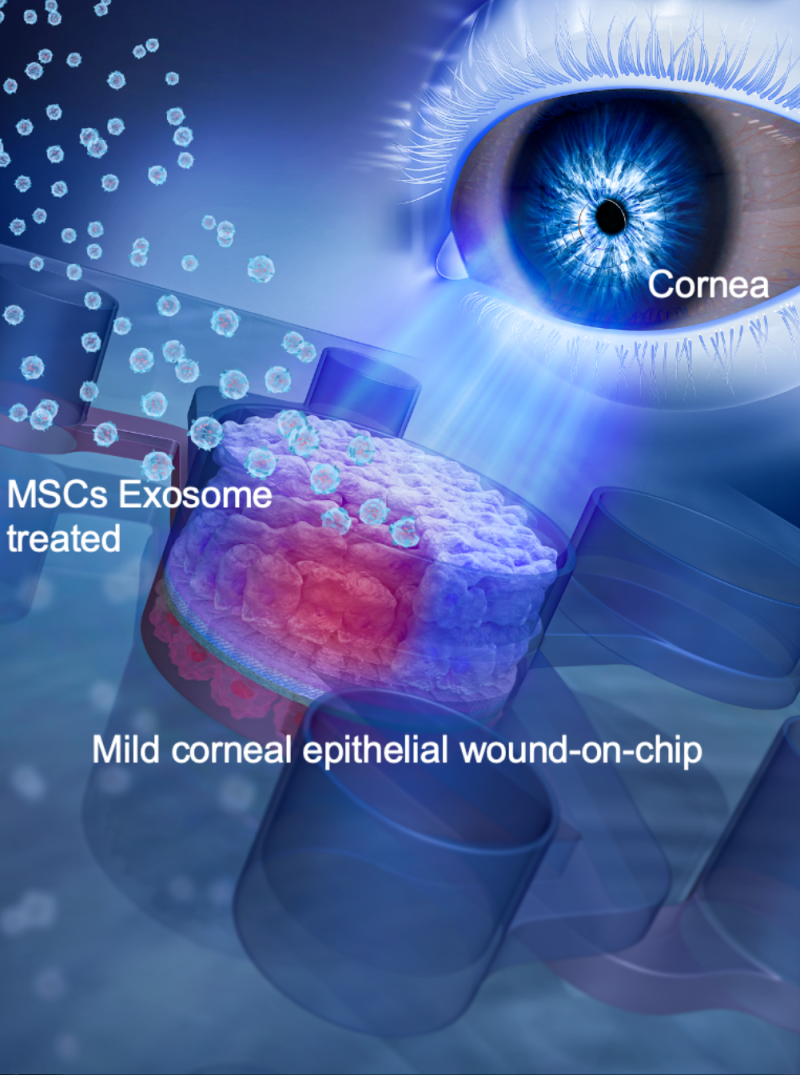Reviewed by Danielle Ellis, B.Sc.May 30 2022
Ophthalmologists and researchers have been looking into mesenchymal stem cells (MSCs) with regenerative and differentiation capacities as a potential therapy option for corneal disorders.
 A human cornea-on-a-chip for the study of epithelial wound healing by mesenchymal stem cell exosomes. Image Credit: SIAT
A human cornea-on-a-chip for the study of epithelial wound healing by mesenchymal stem cell exosomes. Image Credit: SIAT
Professor Hui Yang of the Chinese Academy of Sciences’ Shenzhen Institute of Advanced Technology (SIAT) recently created a human cornea-on-a-chip to test the therapeutic effect of MSC exosomes on corneal disorders.
The study was reported in the journal iScience on April 4th, 2022.
The scientists first created a microfluidic device using human corneal cells and a porous membrane to mimic the multi-scale structural organization and biological phenotype of the human cornea.
Organs-on-chips are microfluidic technologies for cell culture that mimic tissue or organ physiology and mimic their surroundings.
The researchers then used a human cornea-on-a-chip to create an in vitro mild corneal injury model to see if cell-free therapy can help with healing process.
They discovered that exosomes from bone marrow-derived mesenchymal stem cells could enhance cell migration and diminish the production of matrix metallopeptidase 2 (MMP-2) protein, implying that it might minimize ocular inflammation and neovascularization, which was advantageous for wound healing.
We are thrilled to develop a promising platform with dramatic advances for studying nanodrug delivery systems. By mitigating the drawbacks of conventional models, cornea-on-a-chip is able to recapitulate physiological and pathophysiological features of human cornea in artificial microfluidic devices with high fidelity.”
Hui Yang, Professor, Shenzhen Institute of Advanced Technology, Chinese Academy of Sciences
This research used a micro-engineered device to investigate the therapeutic effects of MSC exosomes on ocular disorders, perhaps creating a means to anticipate outcomes from in vivo data.
Our study validates the therapeutic effect of MSCs exosomes on corneal diseases, but the mechanism remains unknown, we will continue working on this question.”
Zitong Yu, Study First Author, Chinese Academy of Sciences
Source:
Journal reference:
Yu, Z., et al. (2022) A human cornea-on-a-chip for the study of epithelial wound healing by extracellular vesicles. iScience. doi.org/10.1016/j.isci.2022.104200.